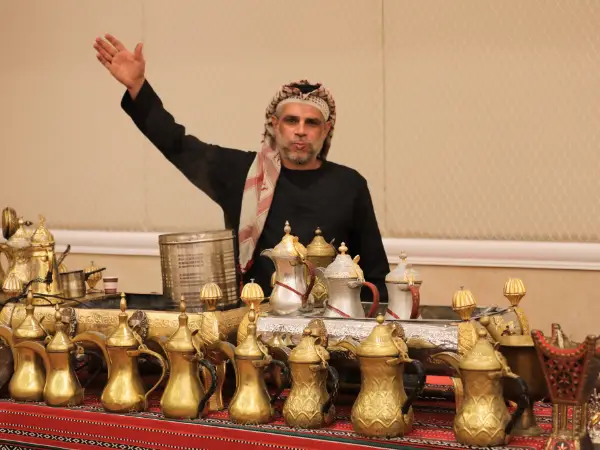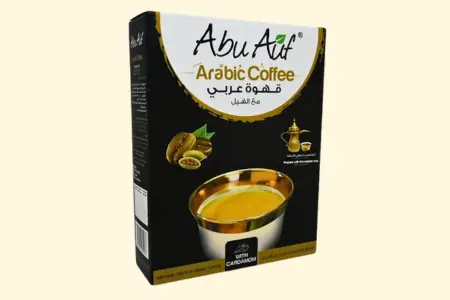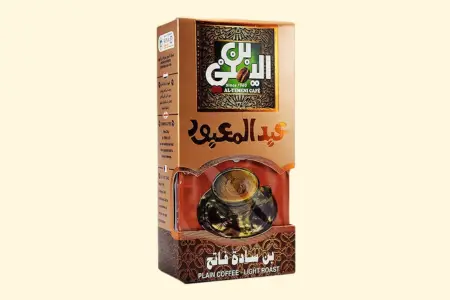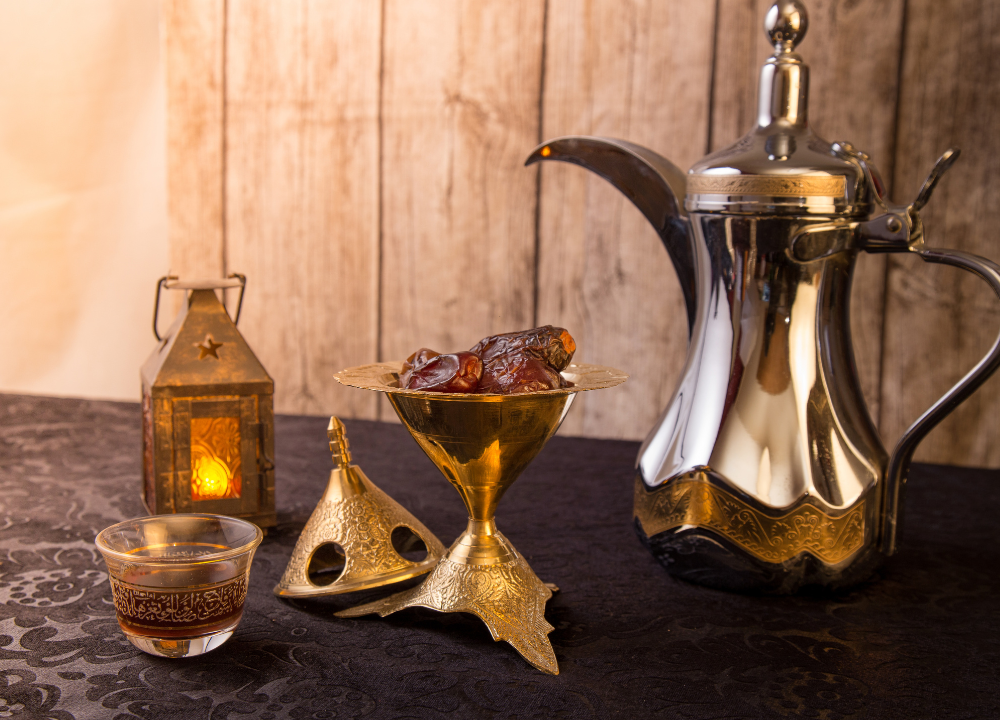Coffee in Egypt is more than just a drink. It is a part of daily life and social gatherings. The process of brewing and serving coffee is an art form, filled with rituals. Egyptian coffee often features a special blend of spices, making it distinct.
Table of Contents
What Is Egyptian Coffee?
Egyptian coffee is often prepared using finely ground beans, resulting in a thick and flavorful brew. It serves as a social beverage, enjoyed during gatherings and special occasions.
The Origins Of Coffee In Egypt
The journey of coffee in Egypt started in the 16th century. Coffee was introduced from Yemen and quickly became popular. Here are some key points about its origins:
- Coffee spread through the trade routes connecting the Middle East and North Africa.
- By the 16th century, coffee houses began to appear in Cairo.
- These coffee houses became centers for socializing and discussion.
In the early years, coffee was enjoyed mainly by the wealthy and intellectuals. It was served in special gatherings and celebrations. The preparation method also evolved. Initially, coffee was brewed in a simple pot. Later, the traditional “jebena” became popular. This pot allows for a slow brewing process, enhancing the flavor.
Egyptian coffee is unique in its texture and taste. It is usually unfiltered, allowing fine coffee grounds to settle at the bottom of the cup. Here is a quick comparison of Egyptian coffee and other popular coffees:
| Type of Coffee | Preparation Method | Flavor Profile |
|---|---|---|
| Egyptian Coffee | Brewed in a jebena | Strong, thick, and rich |
| Espresso | Forced through finely ground coffee | Bold and concentrated |
| Turkish Coffee | Boiled with sugar and spices | Sweet and aromatic |
Coffee’s Role In Egyptian History And Society
Coffee has played a significant role in Egyptian culture and social life. It serves as a symbol of hospitality and friendship. Traditionally, offering coffee to guests shows respect and warmth. Here are some points that highlight its importance:
- Coffee houses became popular meeting places in the 17th century.
- They served as venues for political discussion and cultural exchange.
- Many famous poets and writers frequented these places.
Today, coffee remains a central part of Egyptian social life. Family gatherings often include sharing coffee. It is also common to serve coffee during important events, such as weddings and holidays. The preparation of coffee can be a communal activity, bringing people together.
Egyptian Coffee Culture And Traditions
Egyptian coffee culture is rich and vibrant. It blends traditions, history, and unique brewing methods.
Is Coffee Popular In Egypt?
Coffee is extremely popular in Egypt. It plays a key role in daily life and social interactions. Egyptians consume coffee in various forms. Here are some reasons why coffee is cherished:
- Social gatherings: Coffee brings friends and family together.
- Daily routine: Many Egyptians start their day with coffee.
- Cultural significance: Coffee shops are central to Egyptian culture.
Many coffee shops, known as “ahwas,” serve as community hubs. These places are filled with lively conversations and laughter. They are where people come to relax and enjoy each other’s company.
The popularity of coffee can be seen in the statistics below:
| Year | Cups Consumed Per Person |
|---|---|
| 2020 | 1.2 kg |
| 2021 | 1.4 kg |
| 2022 | 1.5 kg |
In Egypt, coffee is often enjoyed strong and sweet. Many prefer their coffee with spices. Common spices used are cardamom and cinnamon. This adds a unique flavor that sets Egyptian coffee apart from others.
Brewing Methods Unique To Egypt
Egyptians use distinct brewing methods to prepare their coffee. The most common method involves using a long-handled pot called a “kanaka.” This pot allows for a unique brewing experience.
Here are some steps to brew Egyptian coffee:
- Measure coffee: Use finely ground coffee, about two tablespoons.
- Add water: Pour in one cup of cold water.
- Add sugar: Adjust sweetness to taste.
- Heat: Place the kanaka over low heat.
- Stir: Mix well until it begins to foam.
- Remove: Take it off the heat before boiling.
- Serve: Pour into small cups and enjoy.
This method creates a rich and aromatic brew. Many Egyptians enjoy coffee with a side of dates or sweets. The combination enhances the overall experience.
Other popular brewing methods include:
- Using a traditional Turkish coffee pot.
- Infusing coffee with spices during brewing.
- Serving coffee in small, ornate cups.
Each method reflects the deep cultural roots of Egyptian coffee. It is not just about the drink; it is about community and tradition.

Understanding Egyptian Coffee Flavors
This section explores the distinct flavor profiles, common additives, and how it stands apart from other Middle Eastern coffees.
Flavor Profiles Of Egyptian Coffee
Egyptian coffee has a rich and complex flavor. It is typically strong and bold, often enjoyed black. The primary flavors come from the coffee beans and additional spices. Here are some key flavor notes:
- Earthy: A deep, natural taste that reflects the soil where the beans grow.
- Nutty: Many Egyptian beans have a hint of nuttiness, adding warmth.
- Spicy: The use of spices, especially cardamom, enhances the flavor profile.
- Sweet: Some blends carry a natural sweetness, particularly when sugar is added.
Egyptian coffee is often brewed using a special pot called a cezve or ibrik. This method creates a thick, aromatic brew. The coffee grounds are left in the cup, adding to the richness. Here is a simple table of popular Egyptian coffee varieties:
| Variety | Flavor Notes |
|---|---|
| Turkish Coffee | Rich, strong, often sweetened |
| Cardamom Coffee | Spicy, aromatic, with a kick |
| Black Coffee | Bold, smooth, natural flavors |
Each variety offers a unique experience, reflecting local tastes and traditions.
Common Additives: Cardamom, Sugar, And Beyond
In Egyptian coffee, additives play a significant role. They enhance the flavor and create a unique experience. The most common additives include:
- Cardamom: This spice adds warmth and a distinctive aroma. It is often ground with the coffee.
- Sugar: Many Egyptians prefer their coffee sweet. Sugar balances the strong flavors.
- Cloves: Occasionally, cloves are added for extra depth.
- Milk: Some enjoy their coffee with a splash of milk or cream for richness.
Mixing these additives creates a comforting beverage. Cardamom coffee is a favorite, especially during special occasions. It is often served to guests as a sign of hospitality. A typical preparation involves:
- Boiling water in a cezve.
- Adding finely ground coffee and cardamom.
- Sweetening to taste.
- Bringing to a boil and letting it foam.
- Pouring into small cups, grounds included.
This simple process produces a cup full of flavor and tradition.
How Egyptian Coffee Differs From Other Middle Eastern Coffees
Egyptian coffee stands out among Middle Eastern coffees due to its unique preparation and flavor. While other countries have their styles, Egypt’s blend of flavors is distinctive. Key differences include:
- Brewing Method: Egyptian coffee is traditionally brewed in a cezve, creating a thicker texture.
- Flavor Profile: The prominent use of spices like cardamom sets it apart.
- Serving Style: Coffee is often served unfiltered, with grounds in the cup.
- Sweetness Level: Many Egyptians prefer their coffee quite sweet, unlike some other cultures.
Other Middle Eastern coffees, like Turkish or Arabic, may have different flavor influences. Turkish coffee is often stronger, while Arabic coffee might have floral notes. Egyptian coffee’s unique blend creates a warm and inviting experience. This difference reflects the rich culture and history of Egypt, making it a beloved beverage.
Best Coffee Beans From Egypt
The best coffee beans from Egypt have unique flavors and aromas. Egyptian coffee often includes spices like cardamom.
Shaheen Coffee With Cardamom
Shaheen Arabic Coffee is a popular choice in Egypt. It combines roasted coffee beans with cardamom and cloves. This mix creates a rich and aromatic flavor. The preparation method is traditional and precise.
- Roasting: The beans are roasted to perfection.
- Grinding: After roasting, the beans are ground finely.
- Spicing: Cardamom and cloves are added for flavor.
This coffee is often served in small cups. It has a strong taste that many enjoy. The cardamom adds a sweet and spicy aroma. Here is a quick overview of Shaheen Arabic Coffee:
| Feature | Description |
|---|---|
| Flavor Profile | Strong, aromatic, with hints of cardamom and cloves |
| Serving Size | Small cups |
| Preparation Time | 10-15 minutes |
Many Egyptians enjoy this coffee in the morning. It fuels their day and brings people together.

Abu Auf (Arabica Coffee With Cardamom)
Abu Auf is another renowned coffee brand in Egypt. It uses high-quality Arabica beans. The addition of cardamom enhances the flavor.
- Source: The beans are sourced from different regions.
- Flavor: Smooth with a hint of spice from cardamom.
- Brewing: Brewed using traditional methods.
This coffee is a favorite for many. It is known for its smooth texture and rich flavor. Here’s a breakdown of Abu Auf:
| Characteristic | Details |
|---|---|
| Type | Arabica |
| Flavor | Rich and smooth with cardamom |
| Recommended Brewing | Traditional Egyptian method |
People often enjoy Abu Auf coffee during family gatherings. It is a symbol of hospitality in Egyptian culture.

Elyemeni (Ground Beans)
ElYemeni coffee is distinct and flavorful. It features finely ground beans, often mixed with spices. This coffee has a deep, rich taste that is unique to Yemen. The name suggests its origin, which links back to the region.
- Grinding: The beans are ground to a fine powder.
- Flavor: Bold and robust with spice notes.
- Usage: Commonly used in traditional coffee ceremonies.
ElYemeni coffee is celebrated for its unique flavor. Here is a quick overview:
| Aspect | Information |
|---|---|
| Type | Ground Coffee |
| Taste | Bold with a hint of spice |
| Preparation | Best brewed using a traditional pot |
This coffee is often enjoyed during special occasions. Its strong flavor makes it a favorite among many Egyptians.


